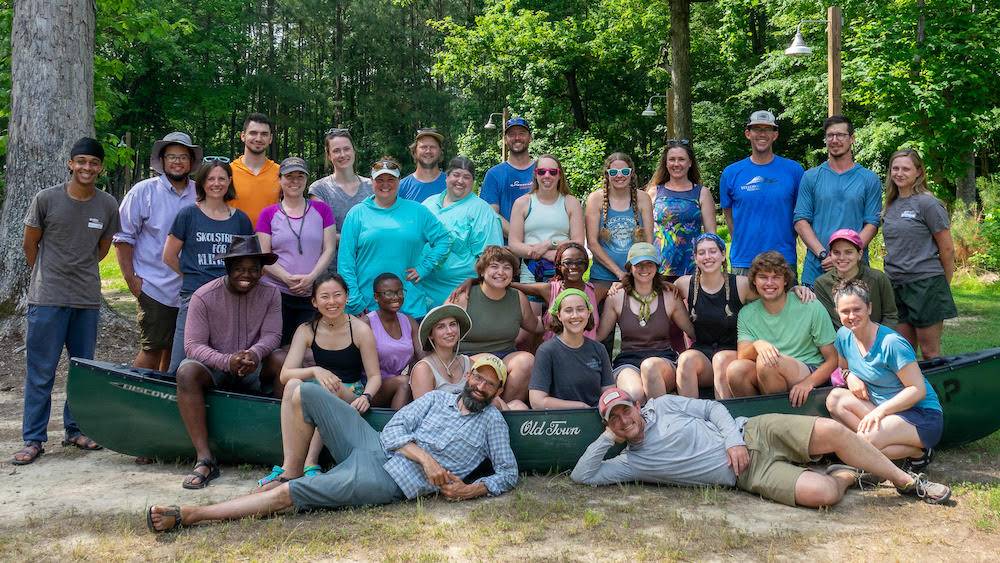The River Field Studies Network: Connecting rivers, people, & science through immersive field-based education (RCN-UBE Introduction)
Author(s): James R Vonesh1, Mathieu Brown2, Denielle Perry3, Sarah Yarnell-Hayes4, Andy Lloyd Rost5
1. Virginia Commonwealth University 2. Prescott College 3. Northern Arizona University 4. UC Davis 5. Sierra Nevada University
481 total view(s), 75 download(s)
Description

Rivers perform a broad set of functions essential to human societies and the landscapes rivers flow through. River-human relationships often are impaired, which threatens both rivers and people. Restoring these relationships will require a diverse workforce of interdisciplinary problem solvers. Field studies are essential to creating this workforce. Field studies connect students to learning objectives, peers, instructors, and society through immersive active learning in real world environments. They help overcome achievement gaps, propel inclusion, catalyze career interest, and create informed and engaged citizens.
However, to achieve these benefits, field instructors must overcome a unique and growing set of challenges. In addition to knowledge of their STEM discipline, field studies instructors require a sophisticated grasp of specialized pedagogy and assessment, fundraising, negotiating institutional bureaucracy, issues of diversity, equity, and inclusion, and multiple dimensions of risk management. Mastering these is more than many self-taught instructors will be able to manage on their own. Without a network for support and guidance, instructors will burn out, risk-averse institutions will shy away, and field studies will continue to decline.
The River Field Studies Network is a response to the paired crises of rivers and field studies. At this moment of critical vulnerability, we must restore and expand the capacity to bring students and rivers into contact through active learning. The River Field Studies Network aims to advance STEM education and support healthy rivers by connecting rivers, people, and science through immersive field education. To accomplish this the network will:
- create a dual-track professional-development structure, including a network for mentorship and curricular exchange as well as a more intensive field-based certificate program;
- develop an online library of open-source lessons and other content for instructors, featuring innovative modules designed to enable student collaboration across institutions and regions;
- recruit intentionally to overcome barriers to diversity of all kinds, and train participants in pedagogical methods that foster inclusivity;
- tackle the pressing need for informed risk management in field-based education through in-person instruction and expert tutorial videos
- reach out to a wider community by building the premier public-facing website for river field studies and creating structures to facilitate student exchange; and
- incorporate assessment at every level to evaluate and continually refine our programming.
These are the essential elements needed to form a sustainable community of practice in river-based education that shares expertise, imparts specialized skills, and cultivates the next generations of leaders, ultimately closing the gaps in institutional capacity that currently threaten the future of the field.
Ways to learn more:
- RiVERS Field Study Network Introduction Video
- RiVER Field Study: 2022 Year in Review
- RiVER Field Study Network QUBES Page
- Newsletter Archive
Ways to get involved:
If you are interested in learning more and participating please join this group or email James Vonesh
Cite this work
Researchers should cite this work as follows:
- Vonesh, J. R., Brown, M., Perry, D., Yarnell-Hayes, S., Rost, A. L. (2023). The River Field Studies Network: Connecting rivers, people, & science through immersive field-based education (RCN-UBE Introduction). RCN-UBE Community, QUBES Educational Resources. doi:10.25334/YGT8-TE82


 RCN-UBE #2120665
RCN-UBE #2120665